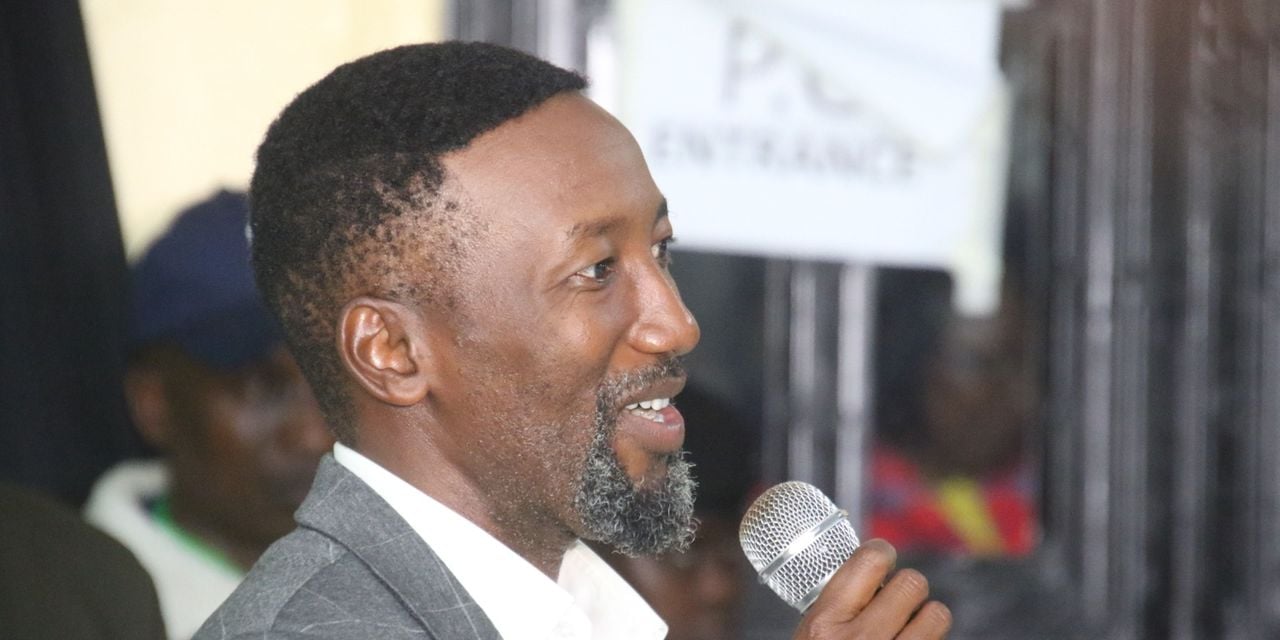Politics
Leo Wamuthende Wins Mbeere North MP Seat
Gachagua accused the government and UDA of sponsoring goons, paying youth for their IDs, and mobilising cash to sway voters — alleging that up to Sh 600 million was being used to influence the outcome.

In a tightly contested and hotly watched by-election, UDA’s Leo Wamuthende has emerged winner of the Mbeere North parliamentary seat, solidifying the party’s hold in Embu County.
Wamuthende secured 15,802 votes, edging out his nearest rival, Newton Kariuki (also known as Newton Karish), who garnered 15,308 votes.
Celebrations erupted across Siakago, Mutuobare, Kanyuambora and other towns in the constituency, with supporters carrying Wamuthende on their shoulders, chanting victory slogans.
A proxy battle turned battleground for Mt. Kenya politics
What began as a routine by-election — triggered by the elevation of former MP Geoffrey Ruku to Cabinet in March 2025 — morphed into a high-stakes duel between the camps of two of Kenya’s most powerful political figures: Kithure Kindiki, the sitting Deputy President, and his predecessor, Rigathi Gachagua.
Kindiki personally led rallies for Wamuthende across Mbeere North in the run-up to the polls, casting the contest as a referendum on delivering development and continuity of government-funded projects.
According to him, electing Wamuthende was vital for completion of major works — including roads, water and electricity infrastructure, and water-reticulation projects from the Kiambere Dam.
On the other side, Gachagua threw his weight behind Kariuki. His campaign adopted a grassroots approach: door-to-door canvassing, village-level outreach, and appeals to voters to resist what he described as “state-sponsored politics.”
The rivalry injected national-level political significance into a constituency by-election, turning Mbeere North into a proxy arena for broader power tussles within the Mt. Kenya region.
Claims of intimidation, bribery and political violence mar the contest
The build-up to the by-election was marred by mutual accusations of attempted election rigging, intimidation and vote-buying.
Gachagua accused the government and UDA of sponsoring goons, paying youth for their IDs, and mobilising cash to sway voters — alleging that up to Sh 600 million was being used to influence the outcome.
He further raised alarms over social-media videos threatening violence, naming senior officials as allegedly behind the threats, and appealed to the Inspector General of Police for protection.
The UDA, for its part, rejected the allegations. The party countered that its campaign had been peaceful, and that the opposition’s accusations were part of “melodramatic reactions” meant to discredit Wamuthende’s bid.
During his final rallies, Kindiki warned that anyone seeking to disrupt peace would be dealt with firmly by the government. He urged constituents to exercise their democratic rights without fear.
Despite the tense climate, initial reports from polling day suggested that voting largely proceeded, though isolated pockets of unrest were reported — with both camps blaming each other for alleged voter-bribery and intimidation.
What Wamuthende’s win signals for Embu and beyond
Wamuthende’s victory represents more than just a local political win. Analysts suggest it consolidates UDA’s dominance in Embu County and signals a wider strengthening of Kindiki’s influence in Mt. Kenya East.
For Wamuthende personally, the win elevates him as one of the region’s rising youthful political figures — with a development-oriented campaign that resonated with voters.
For opposition forces, particularly those aligned to Gachagua, the narrow defeat may prompt a reassessment of strategy ahead of the 2027 general elections.
The strong showing by Kariuki suggests persistent appetite among voters for an alternative to the ruling party — but also underlines the challenge of overcoming the weight of state machinery when it is fully mobilised.
Broader implications: why Mbeere North matters
By-elections such as Mbeere North have repeatedly been described by political pundits as “small elections, big impact”: though they concern a single constituency, the winners and losers can shift power balances across regions.
In this case, the contest has become a bellwether for the larger contest inside Mt. Kenya politics — where allegiances, personalities, and regional influence often define electoral outcomes. The high-profile involvement of two deputy presidents — incumbent and former —elevated the stakes, suggesting this was more than a by-election: it was a referendum on competing visions for the region’s political future.
For UDA, the win underscores its ability to deliver — not only the ballot but promises of development.
For the opposition, it offers both a lesson and a challenge: winning under pressure and in the face of formidable state mobilization will demand sharper strategy and deeper grassroots engagement.
Kenya Insights allows guest blogging, if you want to be published on Kenya’s most authoritative and accurate blog, have an expose, news TIPS, story angles, human interest stories, drop us an email on [email protected] or via Telegram
-

 Grapevine2 weeks ago
Grapevine2 weeks agoAlleged Male Lover Claims His Life Is in Danger, Leaks Screenshots and Private Videos Linking SportPesa CEO Ronald Karauri
-

 Grapevine1 week ago
Grapevine1 week agoRussian Man’s Secret Sex Recordings Ignite Fury as Questions Mount Over Consent and Easy Pick-Ups in Nairobi
-

 Investigations6 days ago
Investigations6 days agoMulti-Million Dollar Fraud: Three Kenyans Face US Extradition in Massive Cybercrime Conspiracy
-

 News4 days ago
News4 days agoTHE FIRM IN THE DOCK: How Kaplan and Stratton Became the Most Scrutinised Law Firm in Kenya
-

 Economy5 days ago
Economy5 days agoIran Demands Arrest, Prosecution Of Kenya’s Cup of Joe Director Director Over Sh2.6 Billion Tea Fraud
-

 Business5 days ago
Business5 days agoA Farm in Kenya’s Rift Valley Ignites a National Reckoning With Israeli Investment
-

 Business2 weeks ago
Business2 weeks agoM-Gas Pursues Carbon Credit Billions as Koko Networks Wreckage Exposes Market’s Dark Underbelly
-

 Africa1 week ago
Africa1 week agoFBI Investigates Congresswoman Ilhan Omar’s Husband’s Sh3.8 Billion Businesses in Kenya, Somalia and Dubai















